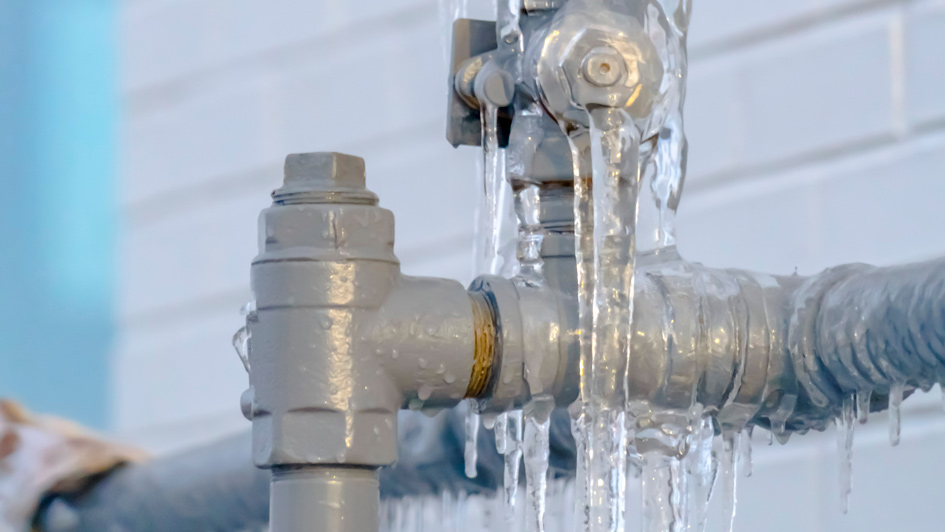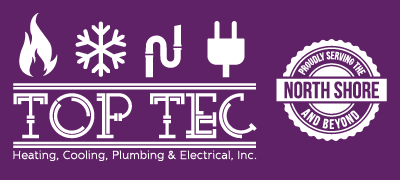
Snow-covered winter weather offers things like sledding down a nearby hill or snowball fights in the back yard. That being said, winter weather can be difficult on your home. Severely cold conditions can cause the water lines in your plumbing to freeze and burst, which can cause significant water damage and enduring negative effects.
When your pipes are frozen solid, you should contact a plumber in Libertyville to resolve the issue. That being said, there’s several tasks you can try to stop this from happening – and even a little prevention can go a long way.
What Pipes Are at More Risk of Freezing
The pipes at the largest risk of freezing are exposed water lines. Frequent locations for uninsulated pipes are in attic crawlspaces, near exterior walls, in the basement or even running underneath a modular home. Water lines that are not appropriately insulated are at the biggest risk.
How to Keep Pipes from Becoming Frozen in Your Home
Sufficiently insulating exposed water lines is a great first step to keeping your pipes ice free. You’ll likely locate most of these materials from a local plumbing company, and could also already have some inside your home.
Try not to cover other flammable insulation materials where they might light on fire. If you don’t feel confident insulating the pipes on your own, get in touch with your local plumbing services professional in Libertyville to get the job done right.
If you do prefer to insulate the pipes yourself, popular insulation materials for pipes are:
- Wraps or roll insulation: Lots of plumbers, hardware stores and big box retailers provide insulation – commonly fiberglass, foam wraps or pipe sleeves – that you can wrap or fit around your pipes. They are sold in numerous lengths and sizes to satisfy the needs of your home.
- Newspaper: To a decent degree, newspaper can be used as an insulator. If the weather is getting colder and you aren’t able to add insulation in time, wrap uninsulated pipes in this.
- Towels or rags: If you aren’t able to install insulation and don’t have any newspaper close by, wrapping especially vulnerable pipes with towels or clean rags as a last-ditch effort may be just enough to keep the cold air off the pipes.
One other preventative step you can attempt to stop pipes from freezing in your home is to fill any cracks that could allow cold air into your home. Keep an eye on the window frames, which can allow in surprisingly powerful drafts. Not only will this help to stop your pipes from freezing, but it will have the additional benefit of making your home more energy efficient.
Five More Ways to Keep Your Pipes from Freezing:
- Open the cabinet doors. Opening the cabinet doors under the sinks and other spaces of your home with pipes will enable more warm air from the rest of the room to reach the pipes.
- Letting water drip. Letting water flow by letting your faucets move even just a little can help prevent frozen pipes.
- Open interior doors. By opening doors between rooms or hallways, your home can be heated more evenly. This is especially important if you struggle with a room that is frequently colder or hotter than the remainder of your home.
- Close the garage door. The exception to the open doors advice is the garage door, which you should keep closed – particularly if your water lines are installed under the garage.
- Keep the heat steady. Experts suggest setting the thermostat at a uniform temperature and leaving it there, rather than allowing it to get cooler at night. Set it no colder than 55 degrees.
How to Stop Pipes from Freezing in a Vacant Home
When you’re at home, it’s not difficult to know when something isn't right. But what additional steps can you try to keep pipes from freezing in an unused home or vacation home when the damage from a frozen pipe can remain unnoticed for some time?
As with a primary residence, insulating any exposed water lines, opening interior doors in the home and winterizing the vacant home are the first steps to try at first.
Alternative Steps to Prevent Pipes from Freezing in a Vacant Home:
- Leave the heat on. Even though you won't always be home, it’s best to leave the heat on – even if you adjust the thermostat down lower than you would if you were there. As with a primary residence, experts encourage keeping the temperature at no lower than 55 degrees.
- Shut water off and drain the lines. If you’re going to be gone for a long time or are winterizing a seasonal cabin or cottage, turning the water off to the house and clearing the water out of the water lines is an easy way to keep pipes from freezing and bursting. Remember to flush the water out of all appliances, including the hot water heater, or the toilets. Confirm you clear out all the water from the system. If you are not sure of how to flush the water from the pipes, or don’t feel confident handling it yourself, a plumber in Libertyville will be delighted to offer support.
